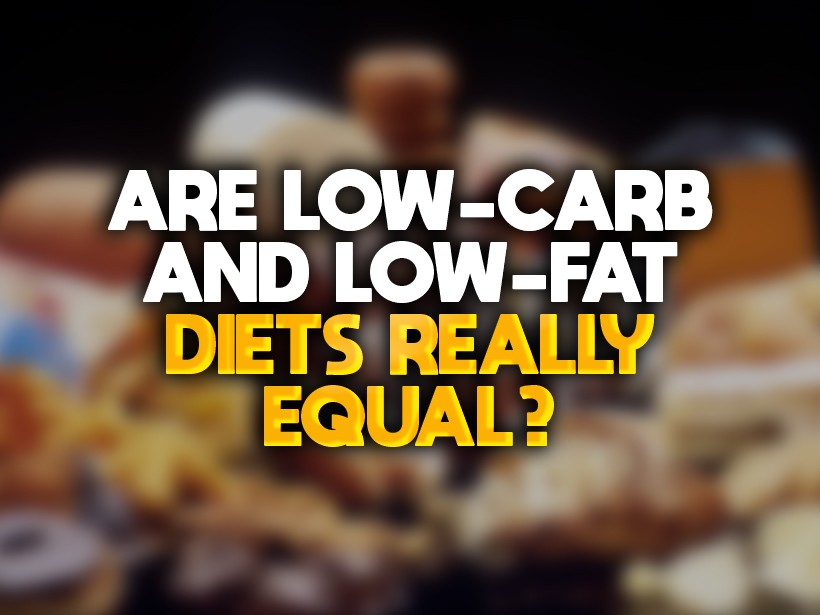A new study published in the Journal of the American Medical Association (JAMA) claims that participants on a low-fat diet and participants on a low-carb diet saw comparable rates of weight-loss over the course of a year's worth of monitoring.1 This has some media outlets saying that it doesn't really matter which diet you follow so long as you consume fewer calories than you burn and focus on consuming whole foods. But is this really true? And what do these results mean for followers of the ketogenic diet? In this article, we will be taking a critical look at this study's findings to determine whether or not they accurately reflect on current data that support going low-carb for quicker weight loss.
Low-carb vs. low-fat
In the current study conducted by a team of nutrition experts from Stanford University, the US National Institutes of Health (NIH), and the Nutrition Science Initiative, over 600 participants were randomly assigned to follow a low-fat diet or a low-carb diet for one year. Participants were all aged 40 and were either overweight or obese at the beginning of the experiment. Of these 600 participants, 481 were able to complete the year on their assigned diet. Results showed no significant difference between the amount of weight lost between groups. Data also showed no influence of genetic factors and insulin production on weight loss as well. This led researchers to suggest that, instead of focusing on following a specific diet, those looking to lose weight should search for whole, unprocessed meal options when grocery shopping.
The end of ketosis?
These results can have anyone following the ketogenic diet questioning their choices. After all, with so many success stories relating keto to weight loss and other health benefits, how could these results be possible? Even further, is it even worth giving up bread and bagels if a low-fat diet will work just as well when it comes to shedding the pounds?
Fortunately for bacon lowers, this study does not confirm the death of the ketogenic diet. It's crucially important to note that, even in the low-carb condition and at their lowest point of carb consumption, participants were consuming an average of 100 grams of carbohydrates daily. This is considered to be about five times as many carbohydrates as is recommended on the ketogenic diet. This overconsumption of carbs more than likely kept the majority of participants' metabolic pathways from switching to ketosis, preventing them from entering a ketogenic state.
The bottom line
Thinking critically is a key part of understanding health and wellness studies; you should not interpret the results of the current study as low-fat vs. keto, but instead as low-fat vs. moderate carb consumption.
NUTRITIONAL DISCLAIMER
The content on this website should not be taken as medical advice and you should ALWAYS consult with your doctor before starting any diet or exercise program. We provide nutritional data for our recipes as a courtesy to our readers. We use Total Keto Diet app software to calculate the nutrition and we remove fiber and sugar alcohols, like erythritol, from the total carbohydrate count to get to the net carb count, as they do not affect your blood glucose levels. You should independently calculate nutritional information on your own and not rely on our data. The website or content herein is not intended to cure, prevent, diagnose or treat any disease. This website shall not be liable for adverse reactions or any other outcome resulting from the use of recipes or recommendations on the Website or actions you take as a result. Any action you take is strictly at your own risk.
- Keto Drives Increased Calorie Burn - July 11, 2019
- New High-Protein, Low-Sugar Greek Yogurt Hits Market - April 1, 2019
- Can Going Low-Carb Fight Back Fat? - December 4, 2018































